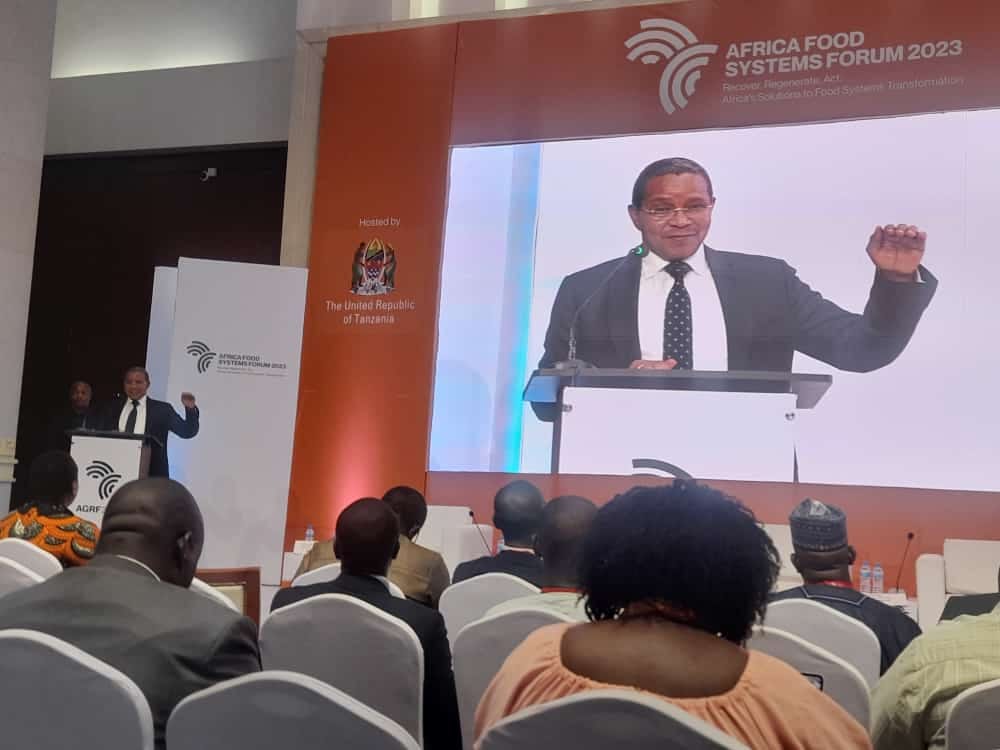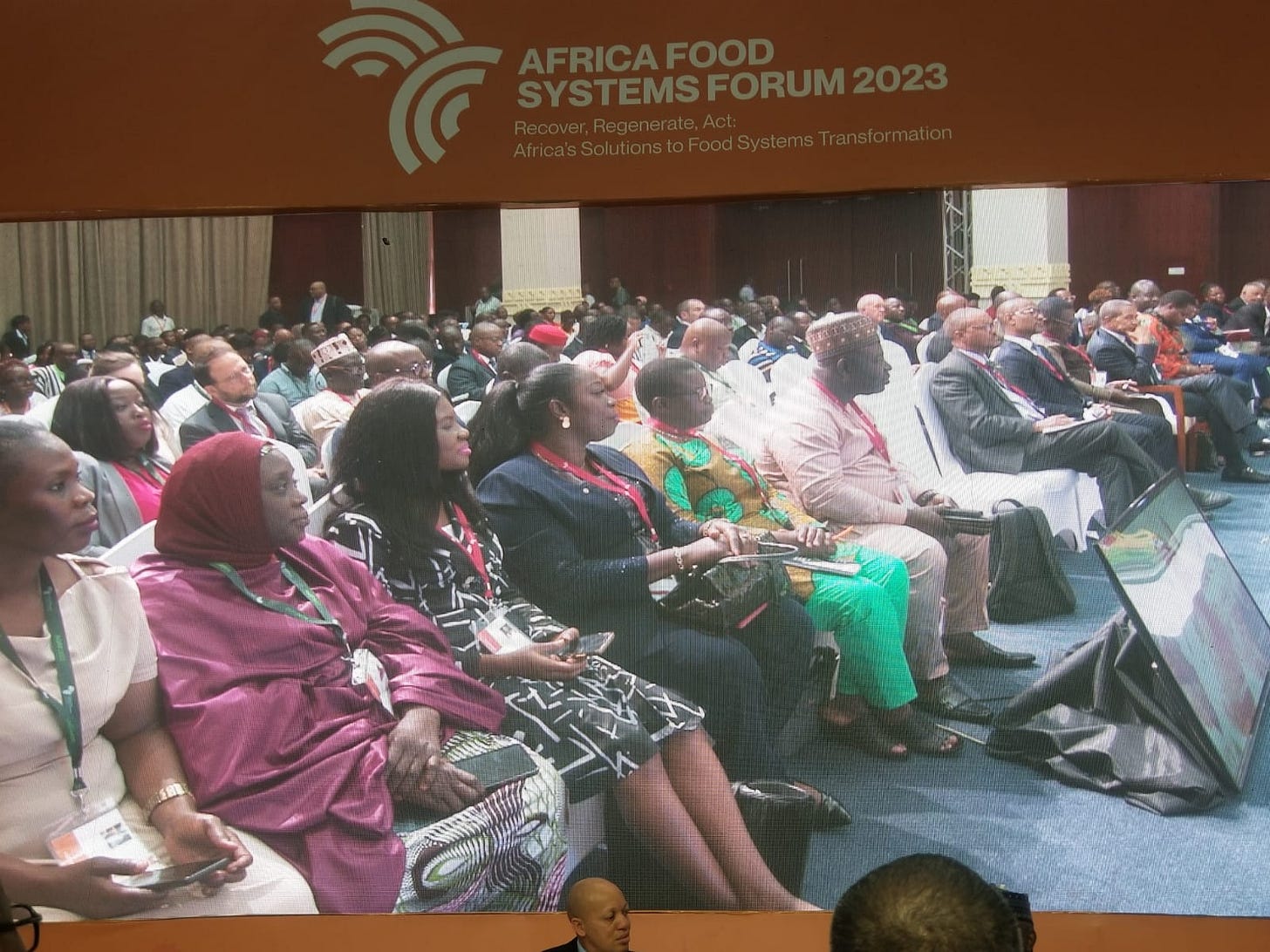BIENNIAL REVIEW REPORT - NSA demand accountability on agri – food transformation in Africa
African legislators, women farmers and youths have gathered in Dar es Salaam, Tanzania as part of the African Food Systems Forum 2023 where the CAADP Biennial Review report is high on the agenda

DAR ES SALAAM, Tanzania (Planet Defence) – Dr. Jakwaya Kikwete former President of Tanzania and African Food Systems Forum chairperson has opened a gathering of African legislators and non-state actors in Dar es Salaam, Tanzania to drive the accountability discourse for agri – food transformation in line with the African Union Biennial Review (BR) report.
The BR is a powerful instrument for advocacy at continental, regional and national levels for triggering the necessary policy actions transformation under the Comprehensive Africa Agriculture Development Programme (CAADP) by 2025.
It is not only a reporting exercise to Heads of State and Government Summit, but also a learning exercise that is important for countries in using the findings of the report to adjust their National Agriculture Investment Plans implementation, to achieve better results in improving livelihoods and to create shared prosperity for their citizens through agricultural transformation.
The objectives among others include to mobilize the agency of nationally elected parliamentarians and the Pan African parliament around the continental CAADP agenda of an inclusive agri-food system transformation; to facilitate the sharing of ideas and actions being undertaken at national and regional levels to deliver policies and investments that drive agricultural transformation. Lastly, to discuss and agree on the added value, function, structure, roles, and mandates of a parliamentary forum for CAADP.

In his opening remarks, Kikwete now a continental champion observed that at the onset of 2022, we thought we were on a trajectory for a full recovery and transformation of Africa’s Food Systems.
The COVID-19 pandemic, Kikwete said extreme weather events, emerging pests and diseases and food price inflation had thrown us off our feet. Nonetheless, before we knew it, we were thrown into another disruption by the Russian – Ukraine war, which has had negative impact on our continent’s food and nutrition security.
These negative events explained Kikwete have happened while the continent continues to grapple with other challenges such as surging population growth and regional conflicts which are impacting Africa’s ability to transform its food systems. The number of hungry people in the continent continues to grow by the day.
“Worse enough, some of these catastrophes are not of our making. For example, Africa is gravely affected by impact of climate change despite only contributing 4 percent of total emissions. However, we continue to experience extreme weather condition, and we are told that this situation alone has the potential to wipe out 15 percent of Africa’s Gross Domestic Product (GDP) by 2030. Currently Africa losses about 280 million tons of cereal crops per year from land degradation. The cost of inaction is estimated at around 12 percent of the GDP of all African countries,” Kikwete told participants to the summit.
According to Kikwete, these challenges have further exacerbated the food and nutrition insecurity situation on the continent. Today, approximately 430 million of our fellow brothers and sisters in African live under extreme poverty and cannot afford a decent and healthy diet.
The Food and Agriculture Organization of the United Nations (FAO) estimates about 60 million under 5 children suffer from stunting, while another 14 million suffer from wasting. This is unacceptable and has to change.”
The Africa Food Systems Forum 2023 is built on the premise that the national legislature is the long-term, representative accountability mechanism for a country's investments and can therefore champion the tracking of progress around BR indicators and drive agricultural transformation agendas at the country level.
Working towards enabling parliamentarians to put in place legislative structures that establish the parliamentary mandate for CAADP BR accountability in the country will in turn ensure that the BR progress becomes a central priority for the executive,” reads part of the communique.
The communique also acknowledged that peer learning for mutual accountability is a core element in the design of this CAADP parliamentarian network; it matters that the parliamentarians engage their contemporaries and peers.
“Learning from elected parliamentary officials, with similar mandates, and using similar evidence to make budget and policy decisions, is at the core of the mutual accountability focus in the CAADP,” the communique state in part.
As such establishing a network of elected officials with complementary mandates in leading parliamentary committees of agriculture, finance, and planning at a national level has great potential for spurring evidence-guided learning, and generating transformative legislative action.
Malawi is being representative by chair of agriculture and public accounts committees namely honourable Sameer Suleman and Gladys Ganda respectively. Other participants include women farmers and the youth as the continent drives the agenda 2063.
The Pan African Parliament working with nationally elected parliamentary officials provides a continental framework and umbrella of leadership for the engagement of all parliaments; a CAADP parliamentary platform could spearhead policy and investment legislative agenda guided by the Biennial Review results.




